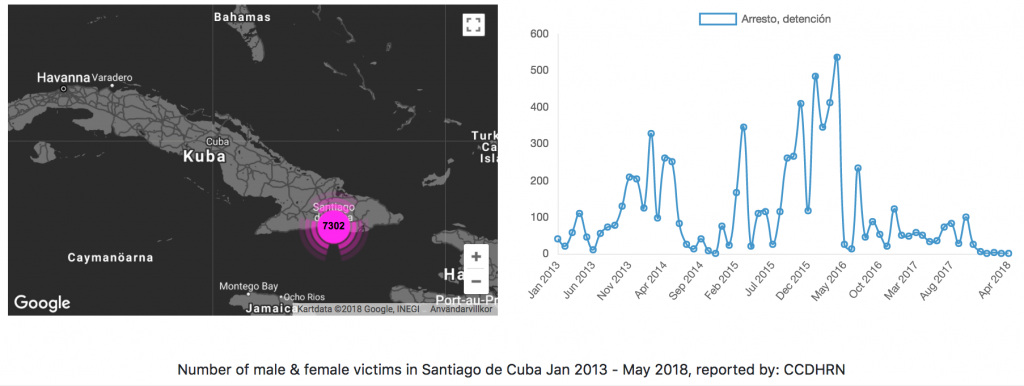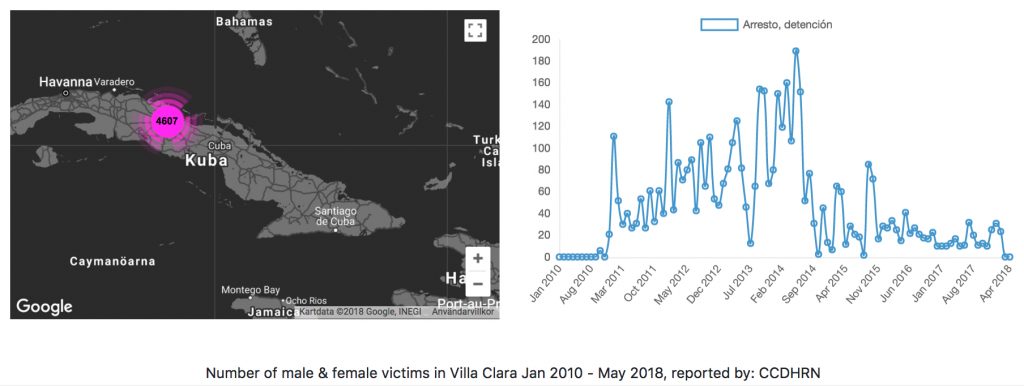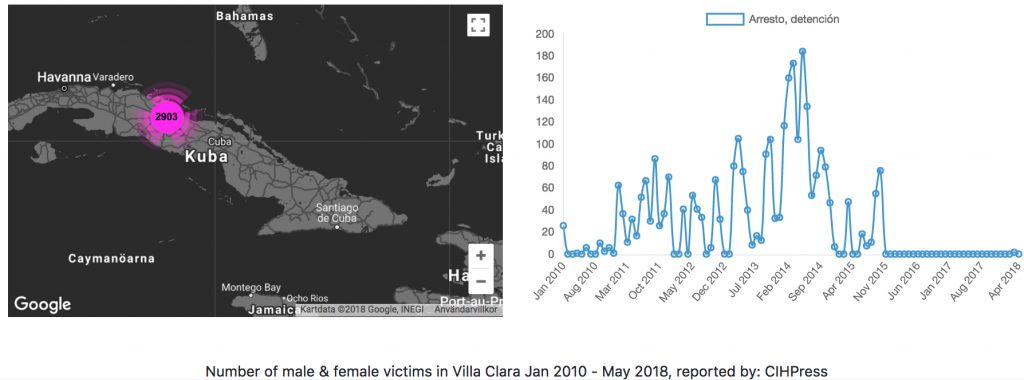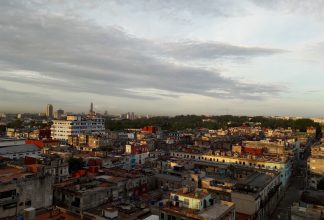Defenders’ Database Starts Off with Data on Human Rights Violations in Cuba
April 5, 2018
Visiting Santiago de Cuba in October 2017, the UNPACU (Unión Patriotica de Cuba) leadership informed us that it is impossible for them to organise public activities due to the repression by the authorities. Up until spring 2016, the police used to crack down on their meetings and public protests too, this however changed when the law enforcement decided to place police officers outside the human rights defenders’ houses before an event, telling them they would be arrested if they left their homes.
As can be seen in the data by the Cuban Commission on Human Rights and National Reconciliation – published in the Defenders’ Database that Civil Rights Defenders makes public today – the change in policy has resulted in a sharp decline in the number of arbitrary arrests in the region since april 2016. People don’t leave their homes just to be arrested.

The Defenders’ Database (DiDi), is a an easy-to-use tool for human rights defenders to register, analyse and share information about human rights violations. It permits users to record data on violations both online and offline, store documentation and import old reports to make the information active again (see the step-by-step tool here).
In the map-and-graph-tool on the web page, you can now find most of the data from the monthly reports by our two certified users from Cuba, Cuban Commission on Human Rights and National Reconciliation (CCDHRN) and Hablemos Press (CIHPress), going back almost a decade. Give the tool a try!
The data of CCDHRN and CIHPress shows for example a very similar trend in the Villa Clara province, where the arrests peaked in spring of 2014, rather than in late 2015 and early 2016 as in Santiago de Cuba. The reason is that the democracy movement in Villa Clara was very active until 2014, but then lost momentum because of the control imposed by the authorities.
CCDHRN data on Villa Clara 2015–2018

CIHPress data on Villa Clara 2015–2018

The comparisons above have been impossible to do before. The CCDHRN and CIHPress reports only exist in pdf- or word-format and have never been structured in a database until now. During the coming months, we will continue to verify the reports in the database with the originals and thereby include more data into the map-and-graph-tool.
The Defenders’ Database was built using the experiences and data from our Cuban partners (see the Defenders’ Database story here), but the need for it is global. People all over the world store information about violations and crimes committed against them in paperback boxes, word-documents and basic excel-sheets. The information is rarely systematised and often kept unsafely or used inefficiently for advocacy purposes.
The purpose of DiDi is to give human rights defenders a tool that systemises reports in a consistent way, making them available for advocacy, analysis, and as evidence in transitional justice processes.
The tool is set up in an easy-to-understand and user friendly way. Available in two languages (Spanish and English), DiDi can be used both online and offline and, if the need exists, it can parse old reports and record the information in the database. It also has an excel template for offline usage.
Are you interested in getting in touch and start collecting your data in a standardised and safe way? We can offer you a DiDi account and a training package. Please contact us at database@crd.org. And, as this is the first version of the both the step-by-step- and map-and-graph-tools, please let us know about all possible bugs and errors so that we can continue the development.


